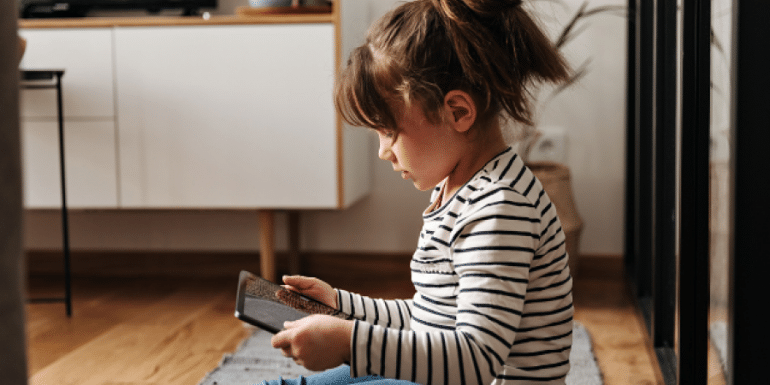New research finds that owning a smartphone at a very young age increases the risk of poor mental health in adulthood.
“Please criminalize harmful content. We don't want it. We want our children back. We don't want to stay awake, terrified for the mental health of our children."
Kate Winslet recently said the above words with tears in her eyes, appealing to the people in power who can limit the use of social media with relevant legislation.
The truth is that many mental health experts are conducting research to determine the effects of internet and social media use on children and teenagers. A recent study focused on the effect of YouTube on loneliness while another reported that a week away from social media benefits mental health.
The earlier someone has a smartphone, the worse their mental health
The image of a child engrossed in a tablet or smartphone is familiar to us. Those who are "outside the dance", as we say, usually criticize parents for giving their children their cell phones to leave them alone for a while. At the same time, the saying "we at your age weren't glued to a screen" – comparing two technologically disparate eras – will certainly be said at some stage of the relevant discussion.
"We know it's not easy, but the evidence is clear: even if kids under 14 need phones to communicate, they don't need smartphones or social media," psychologist and author Adam Grant recently wrote on his personal account about recent relevant research.
The study carried out by the organization Sapien Labs found that the younger children are when they are first given smartphones or tablets, the worse their mental health is when they become adults, especially for women.
For the research, over 27.000 adults aged 18 to 24 were asked at what age they got their first smartphone or mobile device with internet access.
The researchers then cross-referenced these responses with answers to questions about the participants' current mental health. It found that the later someone had received a device, the better their current mental health.
In particular, owning a smartphone at a younger age was associated with lower self-esteem, motivation and resilience but also more sadness, anxiety and distress, as reported mainly for girls. In fact, girls who received a device under the age of 10 were particularly adversely affected later in life, with mental health scores indicating that they are now "experiencing or at risk of a serious mental health condition".
What parents should do
Many parents give their children cell phones to contact them in case of an emergency or out of fear that something might happen. They also often give in to kids' pressure when they stubbornly ask for a smartphone or tablet, often because "every other kid has one."
As educational psychology consultant Dr. Iula Lambrou has reported to OW, "a child under the age of ten should not have their own cell phone under any circumstances." However, as he adds, “the determining factor for such a decision is not the absolute age of a child. It is up to us whether or not he has the maturity to manage such a device." And of course, let's also take into account the different cases of children, such as children with behavioral problems or with Attention Deficit Hyperactivity Disorder (ADHD).
Source: ow.gr
